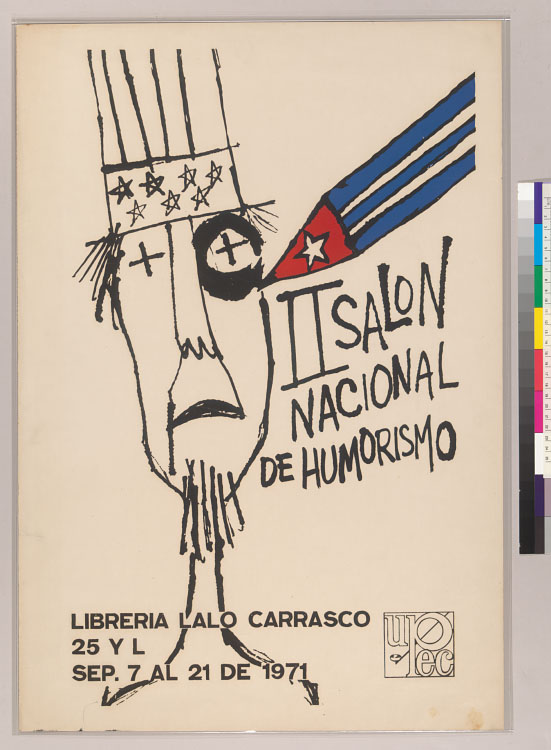Tag: Latin America
Primary Sources: The Guatemala Collection: Government and Church Documents for Sacatepéquez
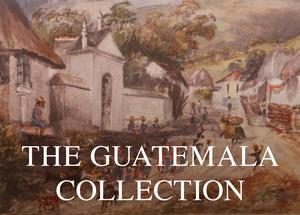 The Library has acquired the The Guatemala Collection: Government and Church Documents for Sacatepéquez (1587-1991).
The Library has acquired the The Guatemala Collection: Government and Church Documents for Sacatepéquez (1587-1991).
Populated predominantly by indígenas (indigenous peoples) who speak Kaqchikel-Maya, Sacatepéquez Department offers an excellent window into Latin American and Native American history. Crucial to Guatemala’s colonial and national development, indígenas were largely discounted and denigrated. Despite such discrimination and disadvantages, many found ways to survive and thrive. Often converging at the nexus of modernization and tradition, the documents in this collection convey the complicated hybrid history of a nation striving to present itself as progressive and civilized in an Atlantic world that seldom associated those qualities with indigeneity. The Guatemala Collection houses a rich array of government, church, and civil documents that bear testimony to an indigenous population’s struggle and success with the changing social, economic, political, and religious dynamics of colonial and independent rule.
The Guatemala Collection comprises ten series. Across these ten series, the documents of the collection are organized into fifty-seven distinct classifications that include such themes as economy, agriculture, forced labor, complaints, crime, annual reports, natural disasters, municipal affairs, education, elections, military, public works, religion, public health, lands and estates, development, resignations and solicitations, regulations, festivities, and maps.
Language: Spanish
Primary Sources: Los Primeros Libros de las Americas
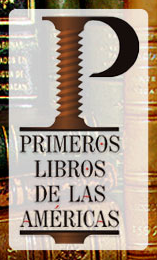 As the site explains, Los Primeros Libros de las Americas is “a digital collection of the first books printed in the Americas before 1601. These monographs are very important because they represent the first printing in the New World and provide primary sources for scholarly studies in a variety of academic fields. Of the 220 editions believed to have been produced in Mexico and 20 in Peru, approximately 155 are represented in institutions around the world.”
As the site explains, Los Primeros Libros de las Americas is “a digital collection of the first books printed in the Americas before 1601. These monographs are very important because they represent the first printing in the New World and provide primary sources for scholarly studies in a variety of academic fields. Of the 220 editions believed to have been produced in Mexico and 20 in Peru, approximately 155 are represented in institutions around the world.”
Event: Opening of Library Exhibit ” “Vida y Resistencia en el Territorio Mapuche, Chile”
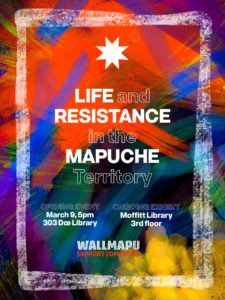 This Friday, March 9, the Library will open an exhibit co-sponsored by the CLAS working group, the Wallmapu Support Committee. “Vida y Resistencia en el Territorio Mapuche, Chile” (Life and Resistance in the Mapuche Territory) can be viewed on the 3rd floor of Moffitt Library from March 9 – June 30, 2018.
This Friday, March 9, the Library will open an exhibit co-sponsored by the CLAS working group, the Wallmapu Support Committee. “Vida y Resistencia en el Territorio Mapuche, Chile” (Life and Resistance in the Mapuche Territory) can be viewed on the 3rd floor of Moffitt Library from March 9 – June 30, 2018.
The opening event is scheduled Friday from 5 pm – 6:30 pm in 303 Doe Library. There will be a short musical performance and some presentations by Chilean and Mapuche community members from the Bay Area.
Primary Sources: Brazilian Government Documents digitized by CRL
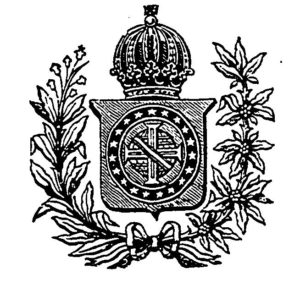 This is the first of a series of posts featuring digitized collections available through the Center for Research Libraries (CRL).
This is the first of a series of posts featuring digitized collections available through the Center for Research Libraries (CRL).
In 2000, CRL, working with the Biblioteca Nacional do Rio de Janeiro, completed digitizing over 670,000 Brazilian government documents selected because of their scarcity, importance, and volume. It is not possible to search these collections; access points are described below.
Provincial Presidential Reports (1830–1930)
These state-level messages, issued annually, summarize activities within each province. Access is by province and year, while subject access to selected quantitative information is provided through the Subject Guide to Statistics in the Presidential Reports of the Brazilian Provinces, 1830–89 compiled by Ann Hartness.
Presidential Messages (1889–93)
The President’s annual message has summarized executive branch activities since Brazil became a republic in 1889. These documents are accessible by year and, where available, by the message’s table of contents.
Almanak Laemmert (1844–89)
The Almanak, published annually, reported on the Brazilian Royal Court. It listed officials of the Court and its Ministries. Also included were sections on provincial officials for Rio de Janeiro and a supplement including a variety of information such as legislation, census data, and commerical advertising.
Ministerial Reports (1821–1960)
Each federal ministry issues an annual report that recounts its activities. Access is by ministry, year, and table of contents (where available).
Primary Sources: Latin American Anarchist and Labour Periodicals (c. 1880-1940) Online
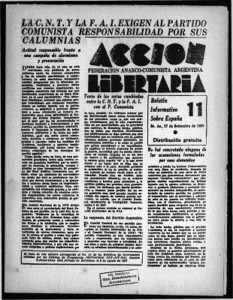 The Library has recently acquired Latin American Anarchist and Labour Periodicals (c. 1880-1940) Online, a collection of 971 titles held at the International Institute of Social History (IISH) in Amsterdam. As described on the website, the “collection contains numerous rare, and in many cases unique, titles. It consists of periodicals accumulated by the Austrian anarchist, historian and collector Max Nettlau (1865-1944), together with a number of later additions. Included, among many others, are the Argentine periodicals La Protesta, La Vanguardia and Acción Obrera; the Brazilian O Exempio, Jornal do Povo and Battaglia; the Chilean Voz del Mar; and the Mexican Ariete, Redención Obrera, Revolución Social and El Sindicalista.”
The Library has recently acquired Latin American Anarchist and Labour Periodicals (c. 1880-1940) Online, a collection of 971 titles held at the International Institute of Social History (IISH) in Amsterdam. As described on the website, the “collection contains numerous rare, and in many cases unique, titles. It consists of periodicals accumulated by the Austrian anarchist, historian and collector Max Nettlau (1865-1944), together with a number of later additions. Included, among many others, are the Argentine periodicals La Protesta, La Vanguardia and Acción Obrera; the Brazilian O Exempio, Jornal do Povo and Battaglia; the Chilean Voz del Mar; and the Mexican Ariete, Redención Obrera, Revolución Social and El Sindicalista.”
This resource has been added to the Latin American History guide.
Primary Sources: Confidential Print: North America, 1824-1961
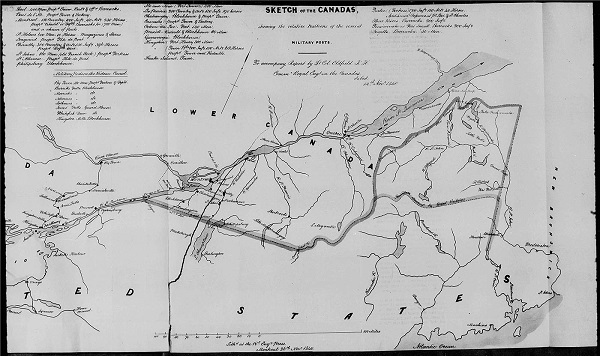
Beginning in the 1820s, the Confidential Print series was a selection of key correspondence, orders, policy documents, treaty texts, and memoranda from Great Britain’s Foreign Office and Colonial Office distributed internally to the Monarchy, Cabinet, members of Parliament, and within their organizations. Confidential Print: North America sheds light on controversies surrounding slavery, the treatment of Canadian indigenous peoples, uprisings against colonial rule, labor unrest in the United states, Nazi and fascist activities in Latin America, and much more. The record groups included in this series of Confidential Print are:
CO 880 War and Colonial Department and Colonial Office: Confidential Print North America, 1939-1914
CO 884 War and Colonial Department and Colonial Office: West Indies, Confidential Print 1826-1961
FO 414 Foreign Office: Confidential Print North America, 1824-1941
FO 461 Foreign Office: Confidential Print America, 1942-1956
FO 462 Foreign Office: Confidential Print United States of America, 1947-1956
More details about the contents of these record groups can be found in the Nature & Scope page of the site.
The Library’s Cuban Poster Collection
More than a decade ago, the Library digitized close to 350 original cultural and political posters from Cuba acquired by retired librarian Carlos Delgado through the exchange program he set up with the José Martí National Library of Cuba in 2000. All are searchable by title, keyword or publisher in the Colección de Carteles Cubanos online database and in the Online Archive of California (OAC) with another 200 slated to be added this year. The posters capture the broad range of national and international campaigns of Fidel Castro’s regime but also a unique perspective on the world through promotional art for exhibitions, performances, festivals, and conferences held on the embargoed Caribbean island nation in the last four decades of the twentieth century.
Primary Sources: Digital Archive of Latin American and Caribbean Ephemera
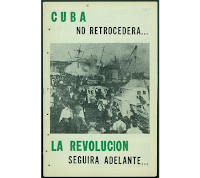 The Digital Archive of Latin American and Caribbean Ephemera is a Princeton University collection of pamphlets, flyers, leaflets, brochures, posters, stickers, and postcards, most of which were created after 1900 to publicize the viewpoints, policies, and political positions of various organizations.
The Digital Archive of Latin American and Caribbean Ephemera is a Princeton University collection of pamphlets, flyers, leaflets, brochures, posters, stickers, and postcards, most of which were created after 1900 to publicize the viewpoints, policies, and political positions of various organizations.
It is possible to search across the collection or browse by genre, language, geographic subject, geographic origin, date created, and subject. The majority of the materials are in Spanish; the metadata describing the items is in English.
Trials: EEO-Edición Española Online & Digitalia
Through May 31, the Library has access to EEO-Edición Española Online, a collection of more than 1,800 e-books from Spain. Not as large a collection as Digitalia which also includes Latin American publishers and remains on trial for the entire UC system through September 1, EEO makes available in digital form the publications of some of Spain’s most important publishers. Some of these are: Akal, Bellaterra, Casa de Velázquez, CSIC, Editum, Iberoamericana Vervuert, Octaedro, Prensas Universitarias Universidad de Zaragoza, Trotta, Universidad de Deusto.
Accessible through Casalini’s Torrossa platform, EEO also makes use of the same platform and functionality of the Italian e-books and e-journals the Library has been able to acquire this year. Please send comments about your impressions of both Digitalia and Edición Española Online. We are especially interested in knowing if any of these titles might be particularly useful for the research and teaching in your areas of responsibility, even if we already have them in print.
Here are the direct links to both collections:
Digitalia
http://www.digitaliapublishing.com
Edición Española Online (search by language “Spanish” and content type “book”)
http://www.torrossa.it
